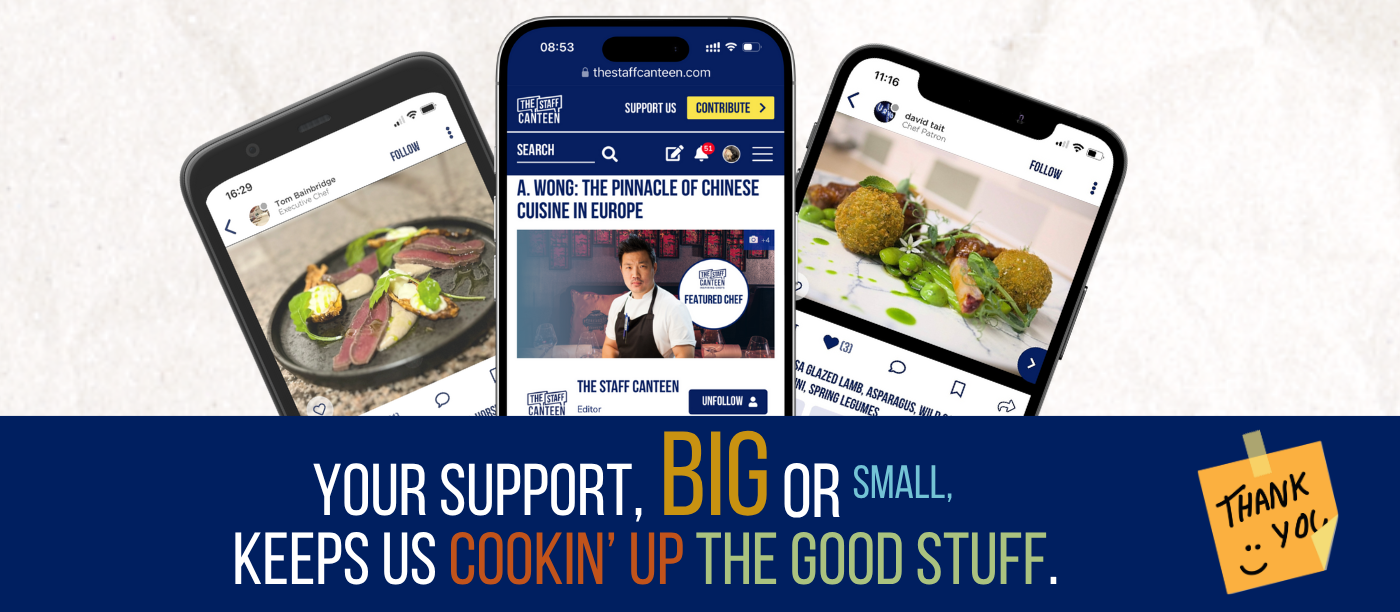Faced with rising costs, chef Stuart Gillies is lowering his prices. Here's why (and how)

Faced with rising costs, chef Stuart Gillies is determined not to raise his prices, choosing to upend his menu and take a zero-waste approach instead
Until recently, the former chief executive of Gordon Ramsay Holdings, who founded Bank House Wine Bar and Kitchen in Chislehurst and Number Eight in Sevenoaks was slowly eking up his prices to match the costs his business was accruing, trying his best to hit his margins and stay profitable. But it just couldn’t last.
Last month, seeing prices continue to rise at an alarming rate, with customers telling him they are all feeling the pinch, he took a long hard look at his menu, and realised he had hit a wall when it came to raising prices without losing sales. "I thought, 'I can't justify this as value for money anymore'.”
As gas and electricity costs are double what they were last year, and other fixed costs standing still, losing footfall wasn't an option.
“What we need is people coming in and people spending and to do that, for me, it's all about creating value for money,” he said.
'buying carefully, planning ahead better, and also introducing the zero-waste policy'
Showing the adaptability that the hospitality industry is so brilliant at, Stuart got to work, revisiting internal and operational processes within the business, focusing on efficiency to keep costs manageable.
“By navigating all the price increases out there, buying really carefully, planning ahead better, and also introducing the zero-waste policy,” he said, he was able to reduce costs considerably.
This is not to say that Stuart no longer buys expensive produce for his restaurant. He still has everything from Cornish scallops to lobster and Chateaubriand on the menu, but, he said, "we make sure whatever we buy, we're using 100 percent of, and that we don't buy too much."
“Because otherwise, you're carrying stock and it ends up as waste and

that's what really has a massive impact on your business.”
None of this is new. Most of what the chef is implementing today, he learned in the 1980s, when he said, "kitchens were extremely tight," commonly using ingredients in two, or even three dishes.
While there are a number of zero-waste restaurants out there, from Doug McMaster's Silo, Adam Handling's restaurant group and the growing list of Green Michelin star sites striving to reduce their impact, and with consumers pushing for sustainability more than ever, the movement seems to be picking up steam. For Stuart, there is a cost-effectiveness argument in there, too.
Necessity is the mother of creativity
To make it work, the chef has established a low-waste routine: in the week, they plan for the busy weekend, but on the weekend, they plan for the quieter weekdays, making sure to be "extremely disciplined."
Incentivising creativity in his team, he gives them lists of ingredients and lets them come up with innovative solutions - such as turning formerly wasted cauliflower from cauliflower cheese – one of the more popular dishes on the menu at Bank House Wine Bar and Kitchen - into a side dish of cauliflower croquettes.
He said: “It really epitomises the fact that a necessity is the mother of creativity, and we needed a solution to really deal with this whole cost basis.”
Unconcerned by competition, Stuart believes that other operators - those who aren't already doing so - should follow suit in tightening their operations and reducing waste, as it will serve the hospitality industry as a whole.
He said: “We are in the business of trying to make people feel better. We are in the business of hospitality so what do you do? You don't whinge and say 'what can we do? Everything's more expensive.' No, we'll go the other way, and we'll make it work.”

For 17 years, The Staff Canteen has been the meeting place for chefs and hospitality professionals—your stories, your skills, your space.
Every recipe, every video, every news update exists because this community makes it possible.
We’ll never hide content behind a paywall, but we need your help to keep it free.
If The Staff Canteen has inspired you, informed you, or simply made you smile, chip in £3—less than a coffee—to keep this space thriving.
Together, we keep the industry connected. Together, we move forward.














